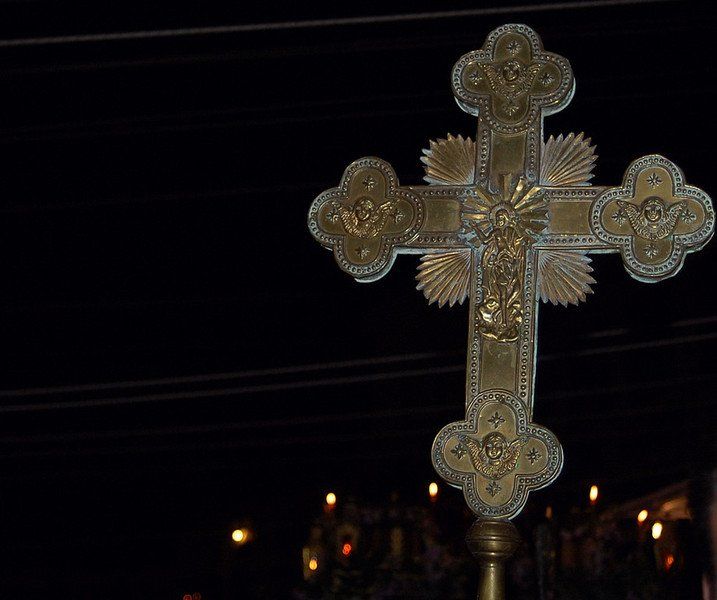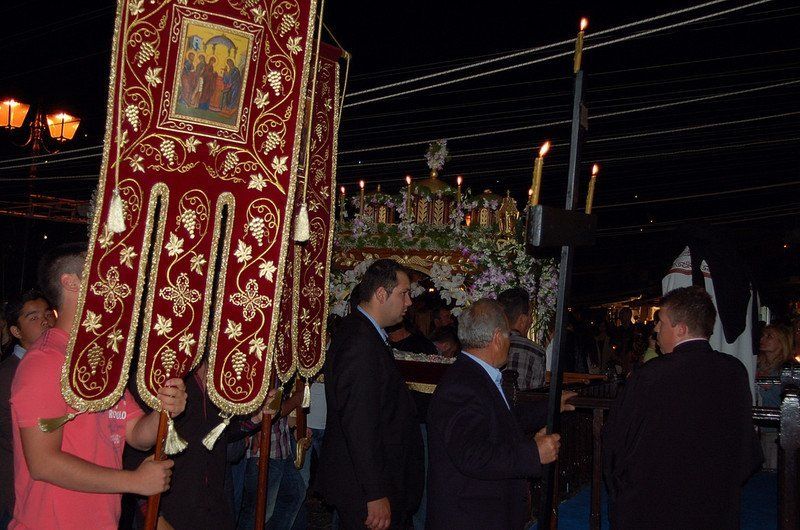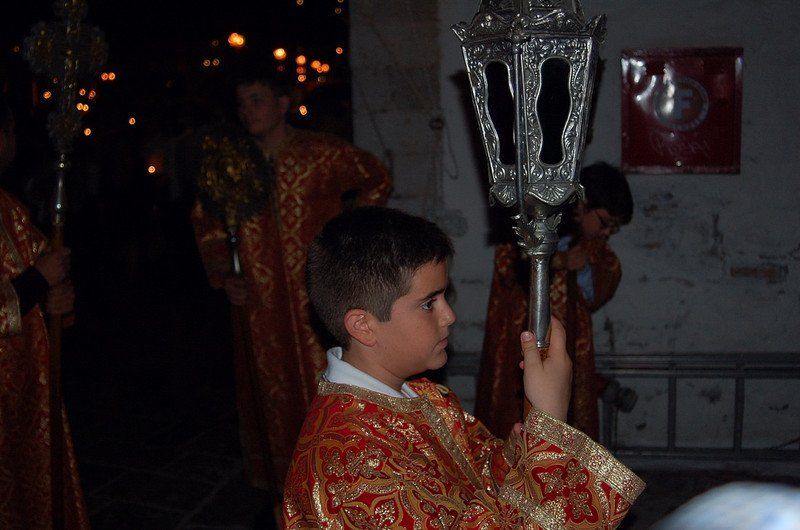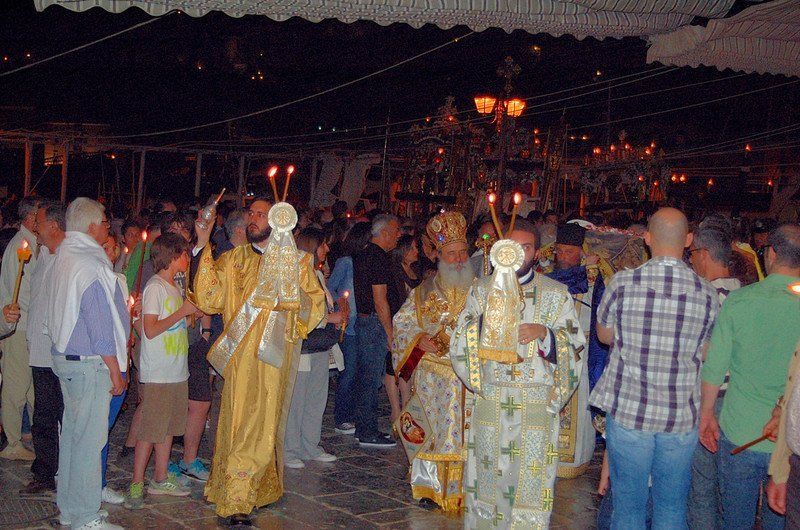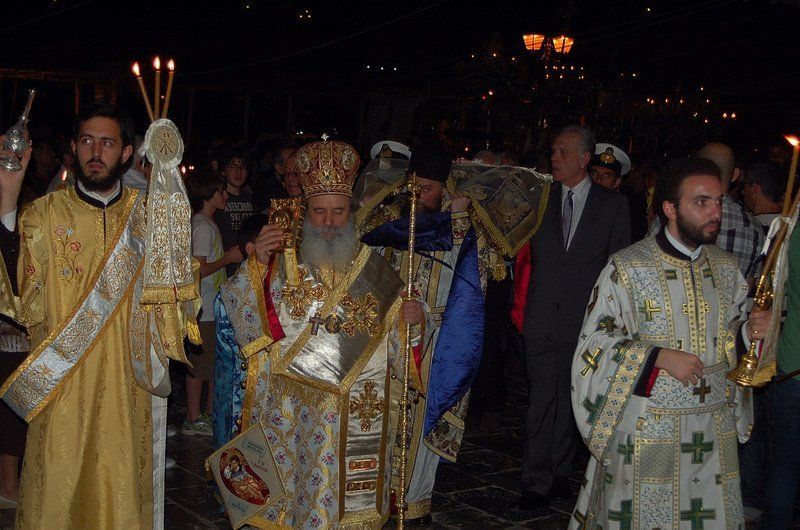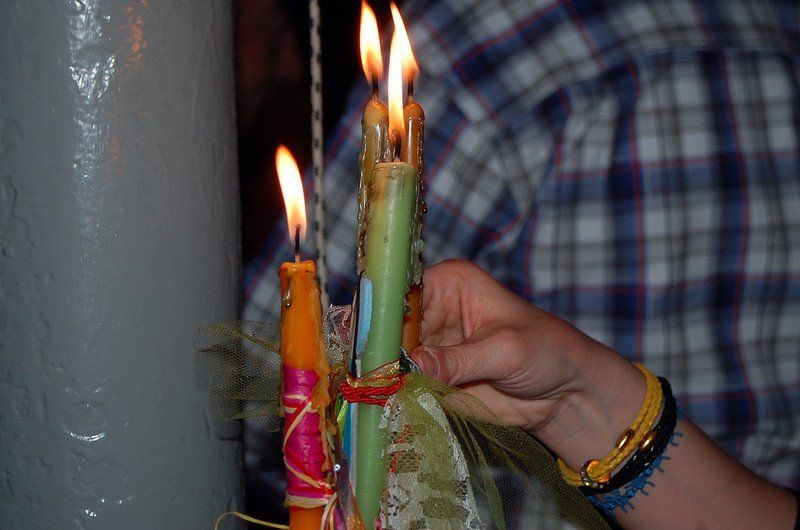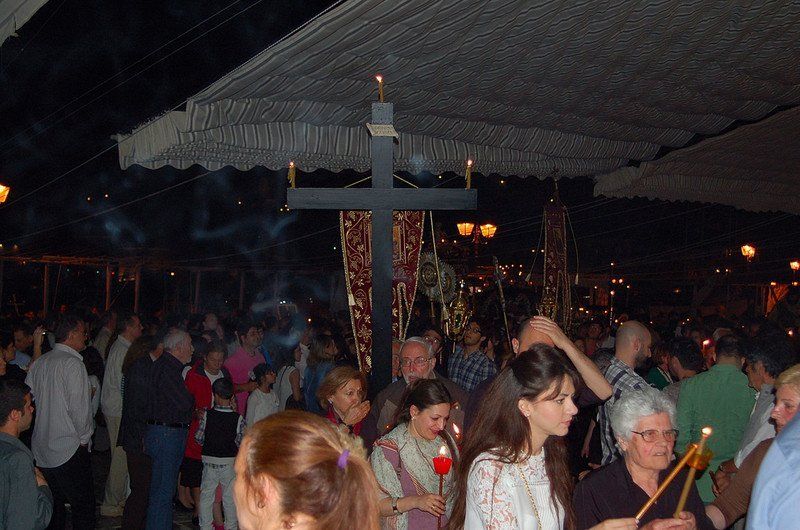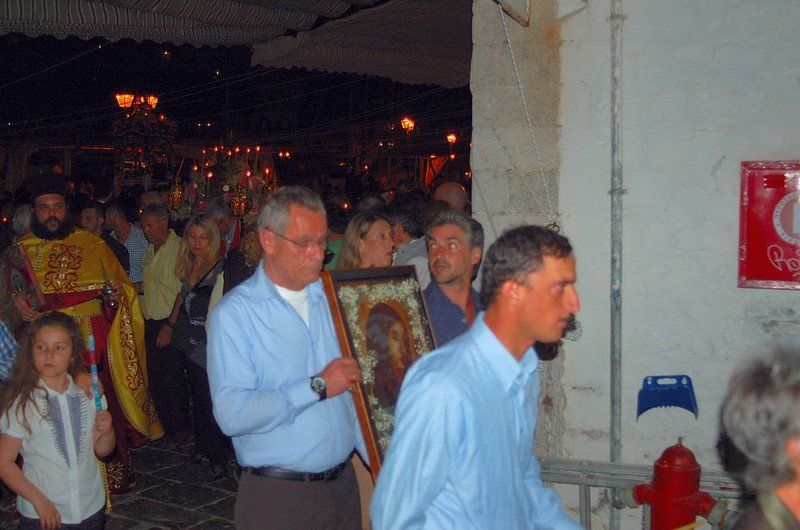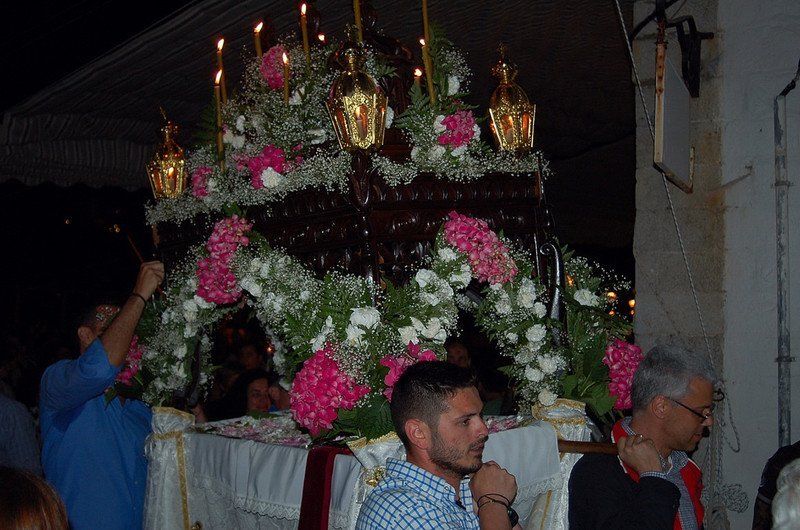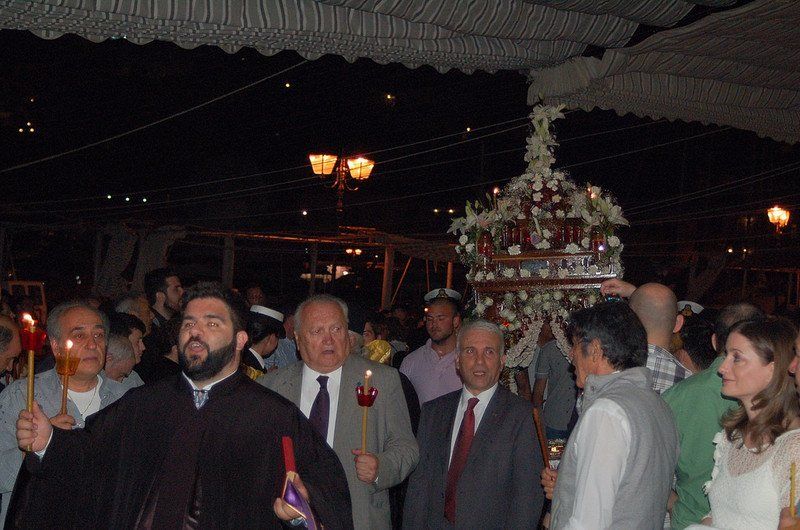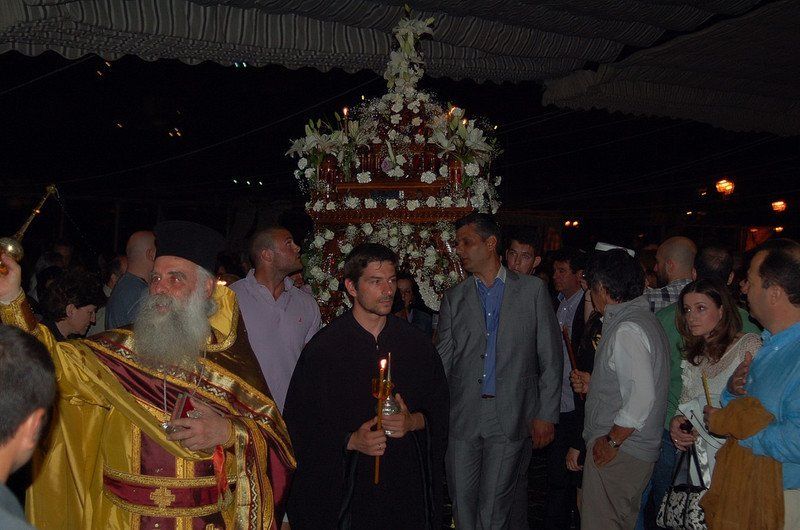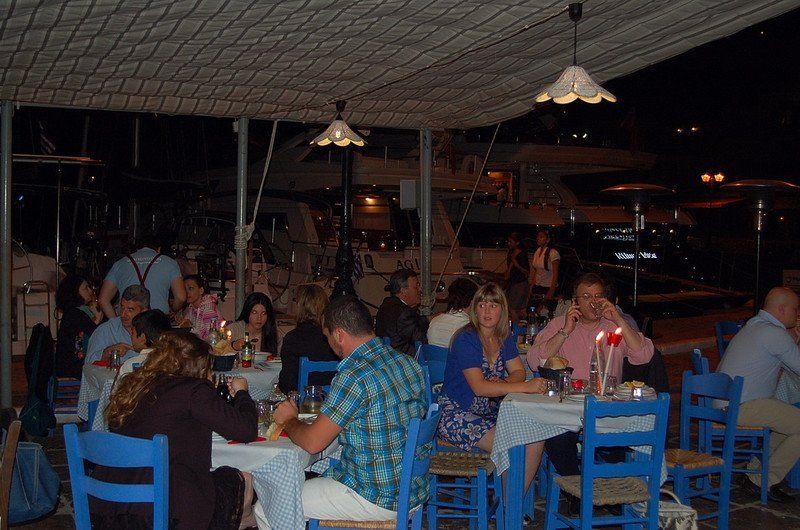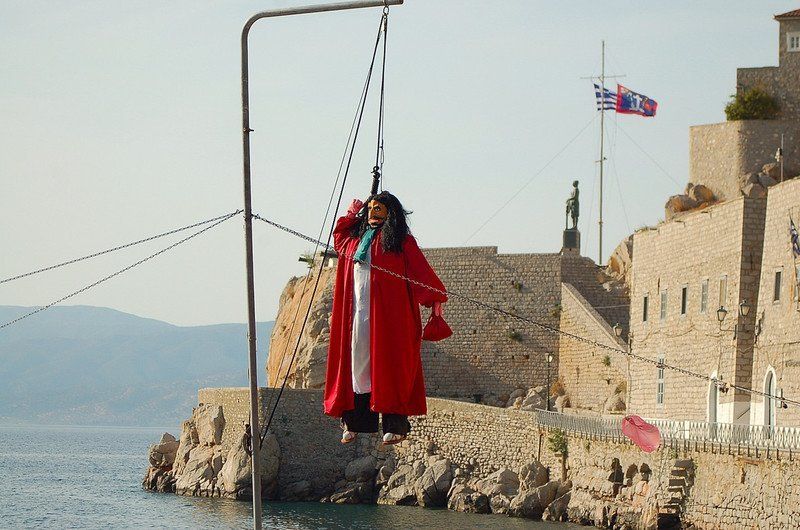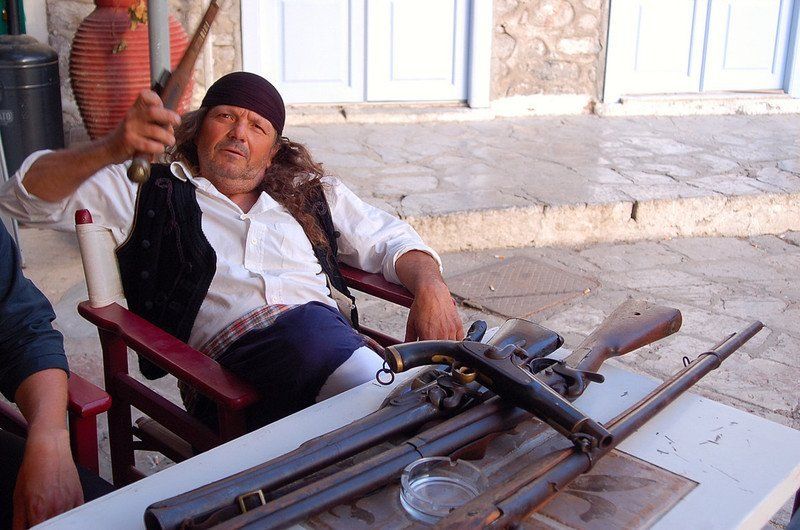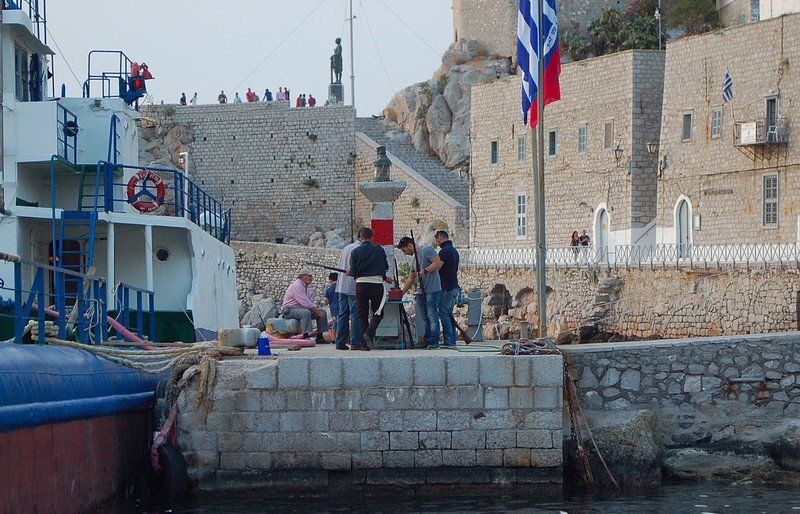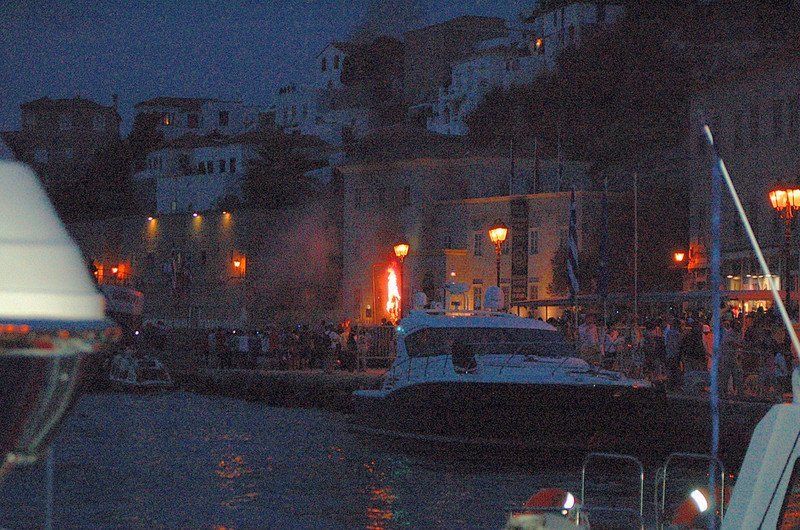Πάσχα - Greek Orthodox Easter on Hydra Island, Greece
Πάσχα - Pascha
Although the most serious and important time of year for the Greek Orthodox Christians, the last night of Πάσχα Holy Week is undeniably one of the most exciting times of the year for Greeks and of course, for visitors to the island at this time. After the solemnity and austerity of Lent with mournful observance of the Crucifixion of Christ on Good Friday, Hydra erupts with happiness and exuberance after the Saturday Midnight Mass for the celebration of the resurrection at Páscha.
Video & Photo below: Greek Orthodox Pascha, Greek Easter, celebrated on Hydra Island, Greece in Kamini Harbour on Megali Pasakevi. (Good Friday.)
Preparation for Pascha begins with Clean Monday (Καθαρά Δευτέρα - Kathera Dheftéra), which is the first day of the seven week period (40 days, plus 7 days of Holy Week) of Great Lent leading up to Pascha Sunday. In addition to fasting, almsgiving and prayer, Orthodox Greeks cut down on all entertainment and non-essential worldly activities, gradually eliminating them until Big Friday (Μεγάλη Παρασκευή - Good Friday) when Christ was crucified, the most austere day of the year.
During Lent, food that is abstained from includes: meat, fish, poultry and dairy products plus wine and oil. The first week of Lent, starting on Clean Monday, is particularly strict and is also a time for 'spring cleaning' homes to ensure they are prepared as much as the souls who live in them. Although technically, Holy Week ( Ἁγία καὶ Μεγάλη Ἑβδομάς - Hagia kai Megale Hebdomas) is separate from Great Lent, its services mirror those of Great Lent (40 days) and abstinence becomes even more strict with some days of Holy Week where Greeks will not eat at all.
Easter preparations begin on Holy Thursday when the traditional Easter bread, tsoureki, is baked, and eggs are dyed red (red is the colour of life as well as a representation of the blood of Christ). Ladies and members of the churches spend the day decorating their Epitafios for the 'crucession' on Good Friday when Christ last walk is commemorated.
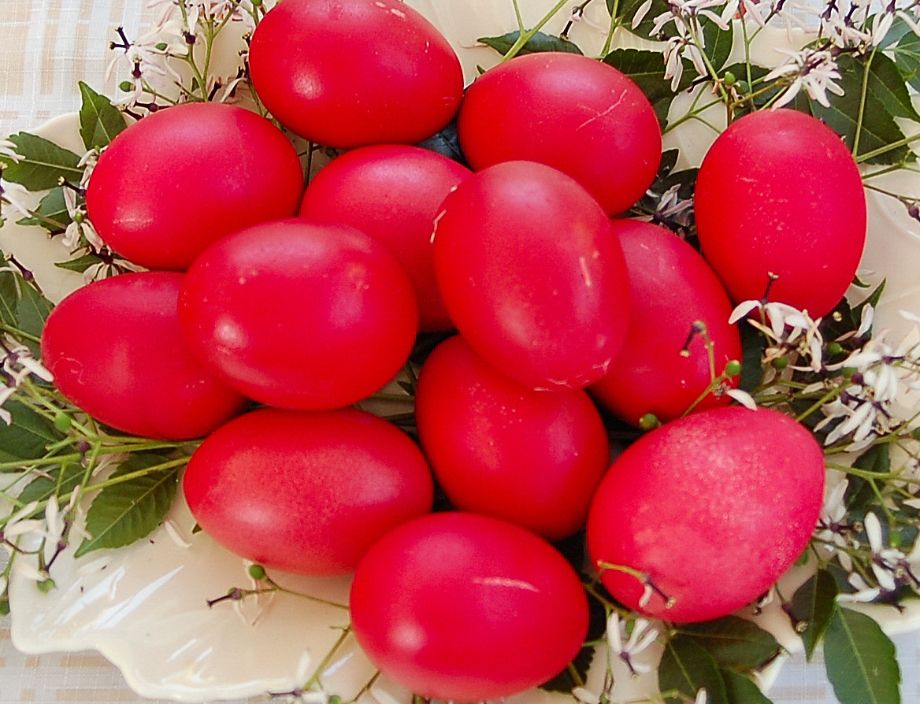
Good Friday (Μεγάλη Παρασκευή - Megáli Paraskeví)
Pascha on Good Friday (Μεγάλη Παρασκευή - Megáli Paraskeví) is a day of religious mourning. It starts with quiet church services, followed by sombre processions from the four main churches in Hydra town, all converging at the Cathedral Church of the Assumption of the Virgin Mary in Hydra harbour at around 21:30.
Each Hydra church procession holds an 'Epitafios' (an imitation of Christ's funeral bier) aloft at the front, with as many as 6-8 bearers and is followed by the priest who blesses the crowd with holy water as he walks along. The Epitafios will have been decorated all through the preceding Thursday night with an abundance of colourful fresh flowers. Hydriots (mainly women and children) valiantly sort, sew and thread flowers in local churches ready for Friday's ceremony.
Brown, beeswax candles are carried by the congregation, to signify the death of Christ, during the Friday night processions.

Meanwhile, just before it gets completely dark, the Church of St. John the Baptist in Kamini starts the Crusession (procession led by a cross) out of the church and down to the little harbour of Kamini where the bearers, young local boys, take the 'Epitafios' into the water and dip it gently so as to bless the water. The procession then goes back to the church where local parishioners continue the service until two in the morning and the crowds of onlookers in Kamini harbour, walk quickly along the coast road to join the throng in Hydra Town for the processions there.
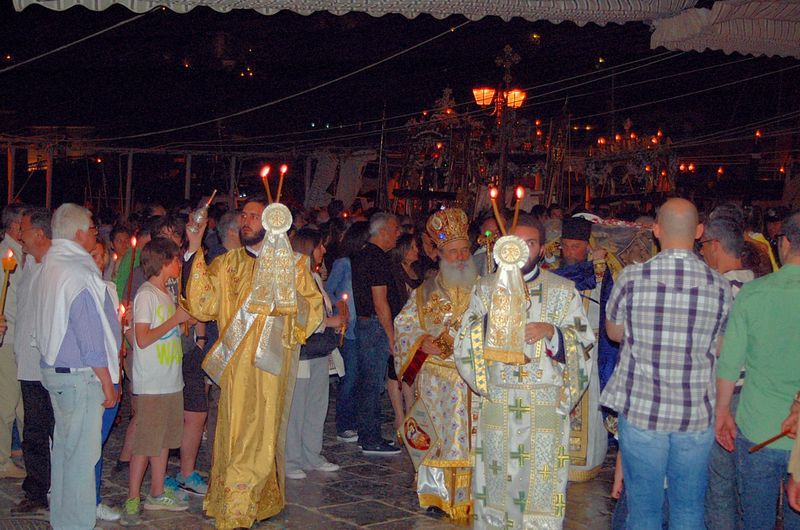
A word of warning: for visitors who want to go to watch the ceremony in Kamini Harbour. You will have to get there well before sunset in order to secure a good viewing point as it gets extremely crowded. Similarly, if you want to take dinner after at either the Kodylenia or Christina tavernas, you will have to book a table months in advance.
Easter Saturday (Μεγάλο Σάββατο - Megálo Sávvato)
There are church services early in the morning but even though some of the youngsters are still excitedly making a lot of noise, the daytime is generally quiet as the Greek Orthodox Church is in mourning until the celebration of the resurrection that start after midnight as Saturday changes over to Sunday.

At the evening mass on Saturday, throngs of people with unlighted, candles gather at Hydra's main churches around the town. The candles on Saturday are white (or brightly coloured and often decorated - gifts from Godparents) as they signify that Christ will rise, as midnight strikes. Often, there are so many people gathered at these churches that they cannot all fit inside and so the congregation overflows outside. Traditionally, Hydriots will attend the church they were baptized at. The churches of St Dimitrios, St Barbara and St George are always filled to capacity as much as the main Cathedral Church. (As the Cathedral is designated as a monastery, so cannot conduct weddings, the parishioners of the Cathedral Church can have their children baptised there.)
At midnight, the lights in all the churches are switched off. The priest lights a candle from the 'perpetual light' in the church (which will have been specially flown to Greece from Jerusalem and then delivered by boat to Hydra on Friday morning), representing the resurrection of Christ and life triumphing over death. The light is then passed from one person to another until even the people waiting outside have had their candles lit. People shout 'CHRISTOS ANESTI' (Christ Has Risen) and kiss each other with joy. Then slowly everyone takes their candles home (often via their favourite taverna for a traditional meal), using all sorts of odd methods to keep the flame alight. The candle smoke is used to make a cross on the ceiling above the main door of peoples' homes to bless the house and the residents who live there, for the coming year. Watching the candlelights moving around the town and up the steps of Hydra is a very beautiful sight.
Saturday Greeting: Christ has risen (Χριστός Ανέστη - Christos Anesti)
Response is: Truly He is risen! (Ἀληθῶς ἀνέστη! - Alithos Anesti)
Christos Anesti!
- You will need to have your speakers turned on when you watch the video above to hear how loud the celebrations can be at Midnight on Saturday!
DON'T BE ALARMED: At midnight, the youngsters (often encouraged by the not so young) feel it is their essential duty to ensure the celebration of the resurrection is as explosively noisy as possible. In the month building up to the final celebration on Saturday/Sunday, they are all busy making explosives, gathering the noisiest fireworks they can find and planning with their friends where they can let them off for maximum effect! During the week preceding Easter Saturday people of nervous disposition often flinch when they hear 'testing' going on. But most revellers try to keep their percussion ready for the big night. So at midnight, when they simultaneously set off their homemade explosives and fireworks, it sounds like a team of demolition experts are trying to collapse the entire town! Windows have been known to be blown out and so sensible homeowners take precautions; they open their windows but close their shutters to preserve their glass! Added to this, traditionally the hunting fraternity in Hydra, will add to the riotous noise by standing on their terraces and firing their shotguns in the air. It can all be a little disconcerting to the uninitiated visitor, but it is sincerely meant in celebration and it is just the Greek way to show how happy they are by making as much noise as possible.
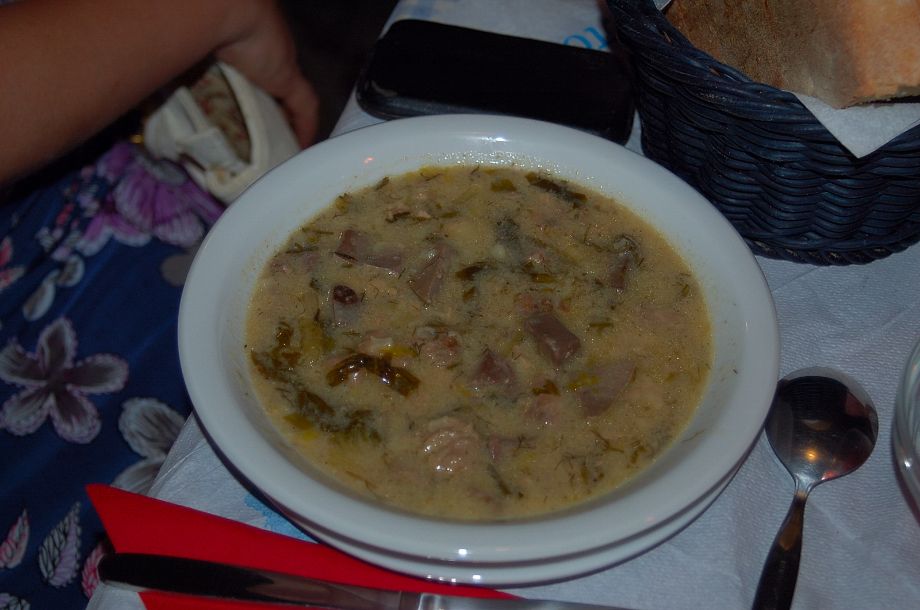
Easter Soup (Μαγειρίτσα - Magiritsa) served at all tavernas and eaten at homes having been prepared on Saturday morning.
The candles are used to light icon candelabra, and are put on the table for the family midnight meal.
Everyone gathers around the table for a traditional meal to break the Lenten fast, which includes:
Easter Soup (Μαγειρίτσα - Magiritsa), which is made with the lamb offal that will have been prepared for Sunday.
Sweet Bread (Τσουρέκι - Tsoureki), which is a sweet, egg-enriched bread, formed of braided strands of dough.
Cheeses
Red eggs
But before the eggs are eaten, there's a traditional challenge of Egg Tapping (Τσουγκρισμα - Tsougrisma). Holding your egg, you tap the end against the end of your opponent's egg, trying to crack it.
It's a game enjoyed by children and adults alike. Eggs are often made in very large quantities since the game continues on the next day with more friends and family.
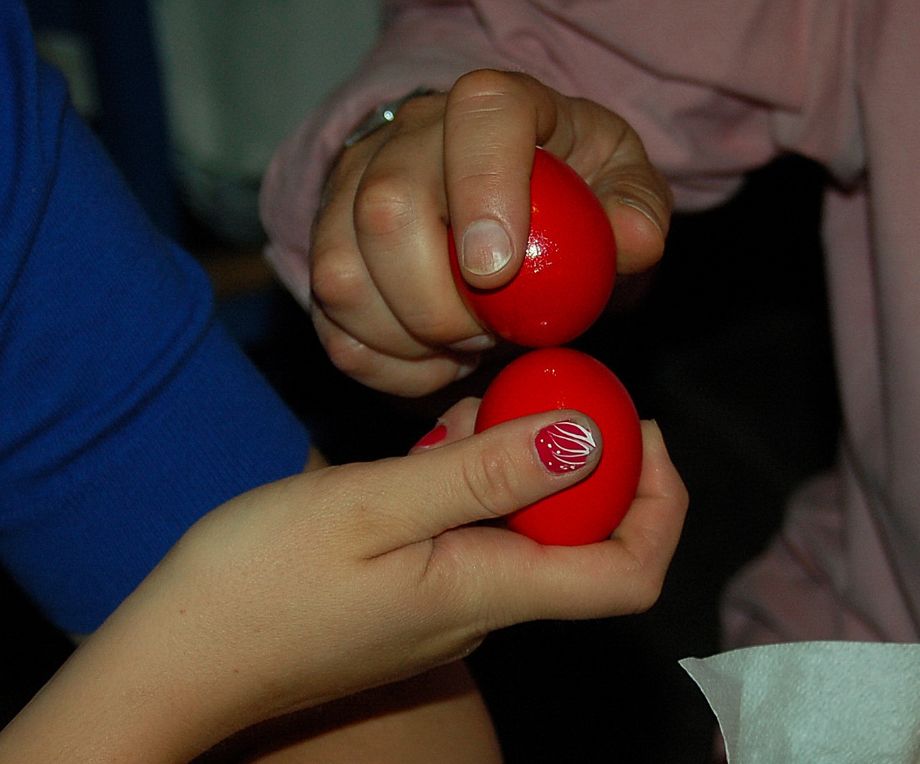
Most of the tavernas in Hydra will be booked well in advance from Midnight onwards. And even though you might find one or two (if you book in advance) who will have non-traditional food available for visitors, the menu is more or less the same everywhere.
Easter Sunday (ΚΥΡΙΑΚΗ του ΠΑΣΧΑ - KYRIAKI tou PASCHA)
On Hydra, Easter Sunday is a day of feasting with family and friends. If not at home, then at the larger more traditional tavernas (Xeri Elia, Marinas & the Enalion). The traditional meal is kokoretsi and whole lamb on a spit over charcoal slowly cooked out of doors, with plenty of Greek Salad, traditional bread, cheese and of course lots of wine to loosen inhibitions so that everyone gets up to dance! It is a wonderful, friendly and happy day that often lasts long into the night and has to be shared!

Good Friday is considered a day of deep mourning and for those Greeks who observe the strict rules of Lent, no cooking is done and they don't eat on Friday.
Preparation for the Pascha feast is done on the Saturday morning. The main meat for the meal is lamb.
No part of the lamb is wasted. Some of the offal, particularly the liver, is used to make Magiritsa Soup to break the fast after midnight on Saturday. And the intestines, remaining offal and sweetbreads are used to make Kokoretsi. This is a sausage made from the intestines which are carefully turned inside out, thoroughly cleaned and then filled with the remaining ground offal seasoned with garlic and lemon. The sausage is then wound on a large skewer and will be roasted with the lamb over an open charcoal fire.
Death of Judas & Fireworks Sunday Night
On the Sunday evening, just before sunset, everyone gathers to witness the re-enactment of the death of Judas (Judas Iscariot who betrayed Jesus) on the small jetty below the Merchant Seamen College. Traditionally the oldest man on the island uses what is reputed to be the oldest gun on the island to shoot the traitor, which theoretically should ignite the petrol soaked effigy, signalling the start of the fireworks display. Invariably though, every man on the island with a gun takes a shot and after numerous false starts the Judas blaze finally gets going and only then do the fireworks start!



